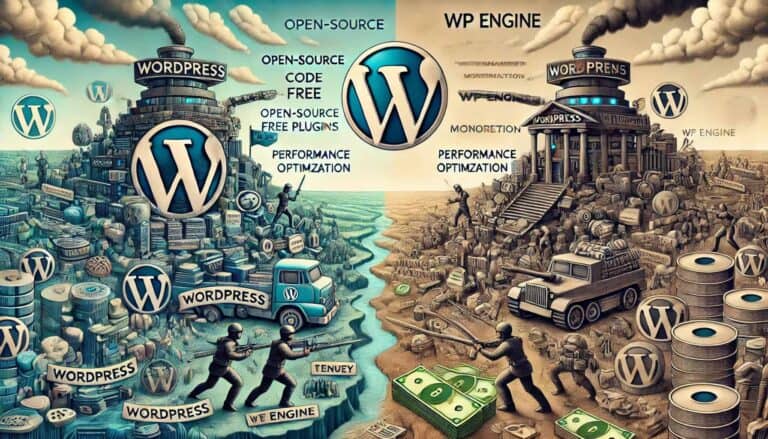Automattic and its CEO Matt Mullenweg must reinstate WP Engine’s access to WordPress.org. With the decision, a California judge has effectively ended the battle between WordPress and WP Engine by also blocking other moves made by the former.
WP Engine filed for summary judgment in October to regain access to its WordPress plugin. Mullenweg previously called WP Engine a “cancer for WordPress” and shortly after that blocked access to WordPress.org for the managed hosting provider and plugin builder. WordPress.org is an option for users who want to host their own website, while WordPress.com, like WP Engine, also provides a managed hosting service. This makes Automattic a competitor with WP Engine, so the courts may have seen the retaliation as an abuse of power.
In a reaction to Techzine, a WP Engine spokesperson said: “We are grateful that the court has granted our motion for a preliminary injunction. The order will bring back much-needed stability to the WordPress ecosystem. WP Engine is focused on serving our partners and customers and working with the community to find ways to ensure a vigorous and thriving WordPress community.”
Plugin back at WP Engine
The battle between the two parties has already seen multiple battles. For example, a popular WP Engine plugin, Advanced Custom Field (ACF), was taken away by Automattic and forked under the name Secure Custom Fields. Again, the courts have now put this ACF plugin back into WP Engine’s control. To top it off, Mullenweg may no longer publish former WP Engine customers on a site that tracks these leavers. Incidentally, the site is still running.
In addition, the battle between WP Engine and Mullenweg/Automattic was conducted in a remarkably public fahsion. For example, the CEO chose to give a sudden interview in a live stream, where he could come up with few legal arguments regarding WP Engine’s alleged mistakes. There would be confusion between official WordPress (run by Automattic) and WP Engine, which would pretend to be an official hoster of WordPress.
Failure to adhere to the WordPress project’s “integrity” and “core values” does not appear to be enough to convince the judge of Automattic’s and Mullenweg’s line of thinking. Thus, it seems WP Engine can still build and pay for plugins to be exclusive to the hoster and not to all WordPress sites.
